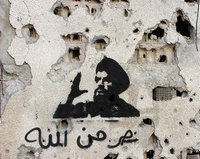BEIRUT, Lebanon -- A polarized Lebanese electorate goes to the polls this Sunday in a hotly contested general election that will determine Lebanon's cabinet and government for the next four years. It is a high-stakes race, with more than 15 political parties and over 700 candidates jockeying for power. As always in this country of roughly four million citizens, the internal faultlines have become a proxy to geopolitical interests and regional turf battles.
The multitude of parties could easily be misconstrued as the genuine sign of democracy and freedom of speech, often lacking in the Middle East. But to a great degree, party allegiance responds not to substantive political platforms, but rather to sectarian preferences.
In north Bekaa, south Lebanon and south Beirut, Hezbollah and Amal, the leading Shiite parties, dominate. In the upscale neighborhoods of downtown and West Beirut, and the northern city of Tripoli, banners of the Future Movement mark Sunni strongholds.

